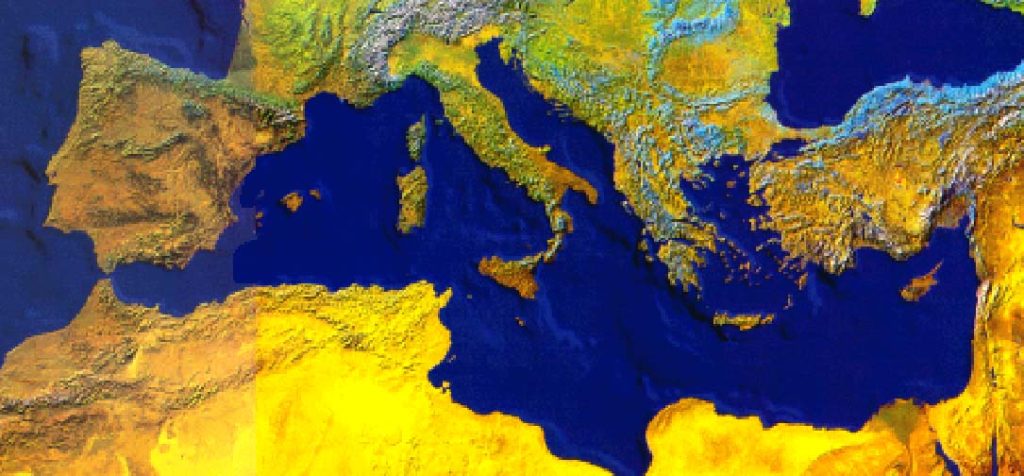[FR] Boost the spirit of Euro-Mediterranean cooperation
This study is based on the observation that, eight years after its adoption, the process named after the Barcelona Declaration has fallen far short of the hopes it raised. The main reason for this is undoubtedly a lack of commitment on both sides of the Mediterranean. The partnership lacks a strategic vision for the region as a whole, even though the events of 11 September have demonstrated the accuracy of European analyses of the conditions for regional stability.

The next political meeting is scheduled to take place in Naples in November. The foreign ministers of the 27 member countries will then discuss how to breathe new life into this cooperation. Drawing on the work of leading experts, in particular Ambassador Jean-Pierre Courtois and Rémy Leveau, and on the European Commission’s communication of 11 March 2003, Bénédicte Suzan, a researcher at the Mediterranean Foundation for Strategic Studies, returns here to a subject close to her heart.
Her publications include ‘The Mediterranean: a challenge and an object for international powers’, ‘Stability in the Mediterranean after 11 September 2001’, ‘September 11th and The Barcelona Process’ and ‘The presence of the US Sixth Fleet in the Mediterranean: a question mark?’. She begins by recalling the origins of a cooperation whose three components are modelled on the three baskets of the 1975 Helsinki Declaration: political affairs and security, economic and social affairs, and cultural and human affairs. In short, the aim is to promote democratic reforms, economic liberalisation and the independence of civil society.
The Essen European Council (9-10 December 1994) had already noted that the Mediterranean was a priority area of strategic importance for the European Union. The region is set to become an ‘area of peace and shared prosperity’, in accordance with the provisions of a Euro-Mediterranean Charter, while the creation of a free trade area is planned for 2010. The MEDA programme, which is the concrete and, so to speak, budgetary expression of this, with annual allocations of around EUR 1 billion, is largely based on the early PHARE programme, when it was not yet a pre-accession programme.
It should be noted that the Barcelona Process has been kept separate from the Israeli-Palestinian peace process from the outset and that it itself served as a reference point for the launch of the Northern Dimension, a Finnish initiative aimed at developing links between the northern part of the European Union and its neighbour, north-western Russia. The author examines and assesses the challenges of this cooperation, both specific and derivative, such as that of the CFSP. The common foreign and security policy will indeed be judged first and foremost by its results in the Union’s immediate neighbourhood. The geographical frameworks chosen for the first four common strategies bear witness to this.
The success of Euro-Mediterranean cooperation can only bode well for the subsequent development of the CFSP, both in terms of greater integration and the broadening of its horizons. The reader’s attention is also drawn to the conflicts of interest, and even rivalries, between Europeans and Americans in this region, at a time when the Atlantic alliance itself has been engaged in a Mediterranean dialogue since 1994. The Americans defend two vital interests: the free flow of oil and the security of Israel. They see the region as one of the key links in ensuring their control of the Middle East and Central and Asia Minor, which many analysts consider to be at the heart of their strategy. Thus, Americans and Europeans do not share the same vision of a stabilised Mediterranean.
The American view is less integrated into a global vision of security issues. On a completely different level, the author highlights the modest level of intra-regional trade, which accounts for only 5% of trade on the southern shore, and questions the reasons for the slow disbursement of Community funds in the years following the declaration. The study concludes with a series of recommendations for each of the three areas. Of particular note is the decision to use enhanced cooperation to develop relations with a country such as Morocco, which is keen to move forward and could bring the other Maghreb countries with it: the formation of sub-regional groupings should not be overlooked.
Also noteworthy is the aspiration for a collective security system within the framework of the Euro-Mediterranean Charter, the adoption of which has been postponed. In this regard, the author refers to the search for complementarities with the Mediterranean dialogue of the Atlantic Alliance, which has just been mentioned. The establishment of a free trade area in 2010 could also prove premature, judging by the strength of the economies on the southern shore, which are still largely based on family-run micro-enterprises that are ill-equipped to withstand the resulting competition.
The thorniest issue, and the one giving rise to the strongest demands from the southern countries, remains, of course, immigration. The North is caught in a contradiction: mass unemployment is leading it to adopt a restrictive stance, while the need to finance pay-as-you-go pension systems, not to mention the inevitable reference to the four freedoms, starting with the freedom of movement of persons, should encourage it to be much more open.




